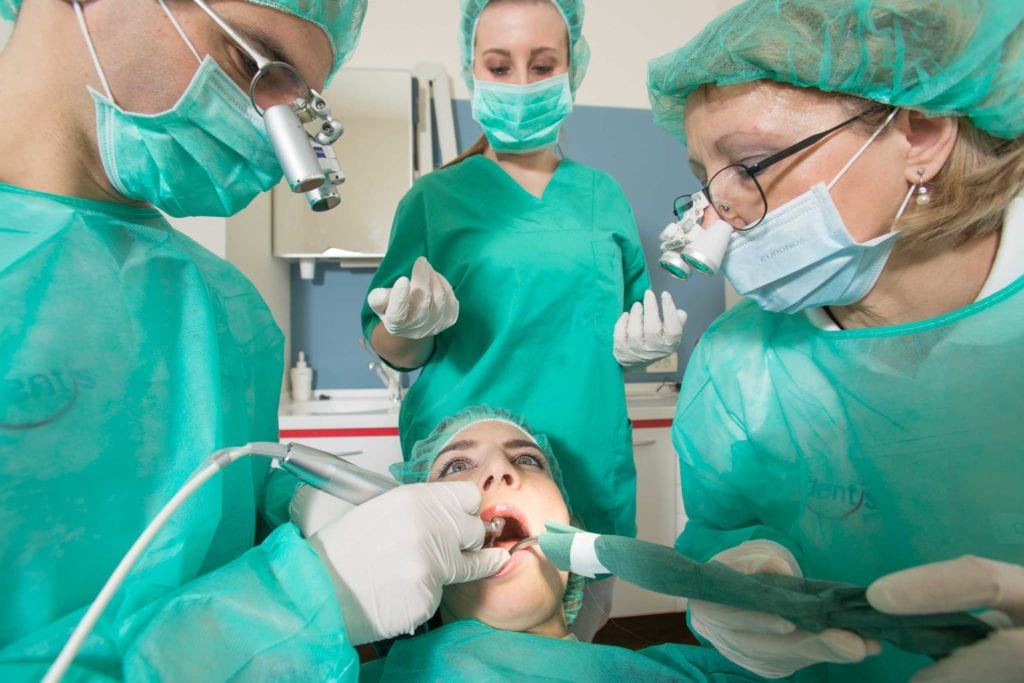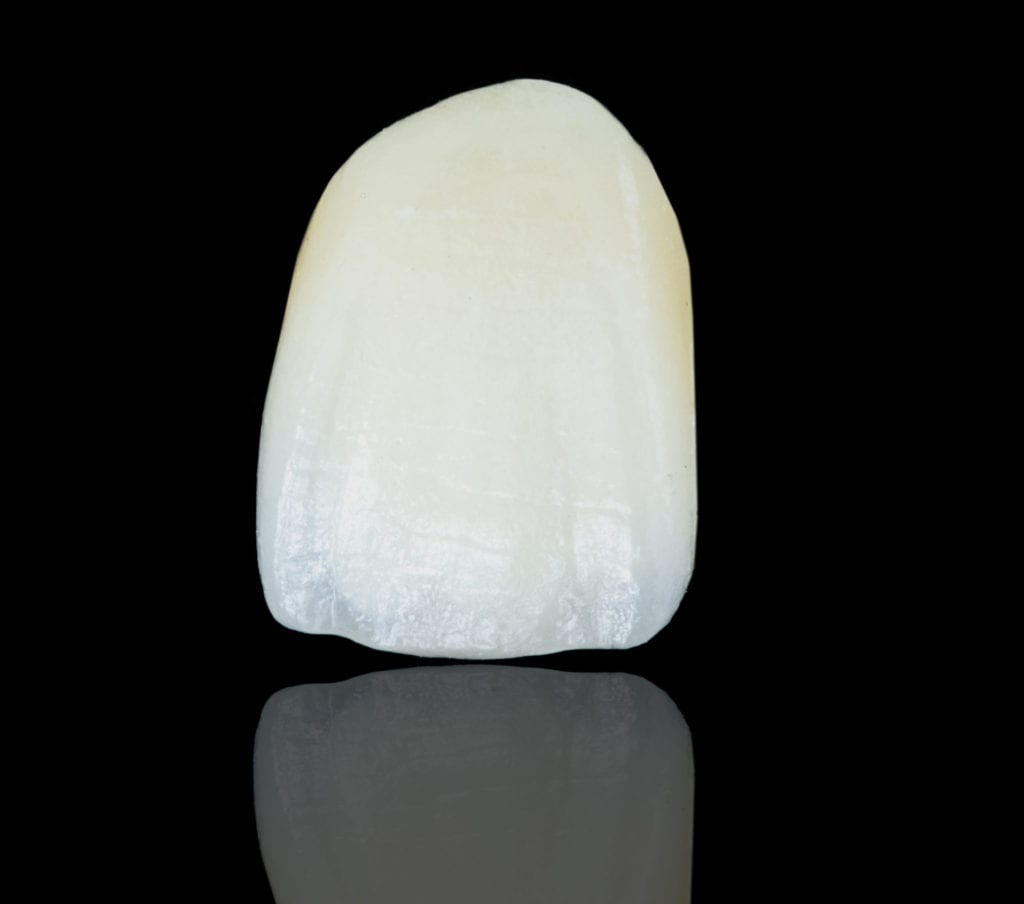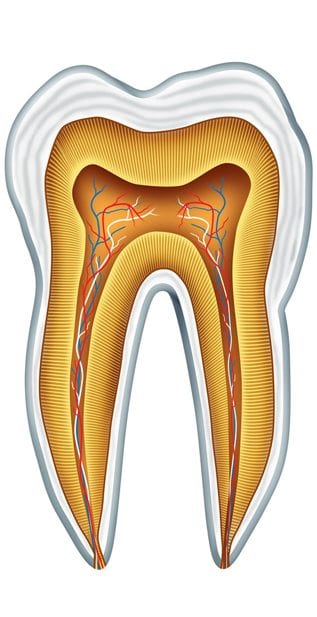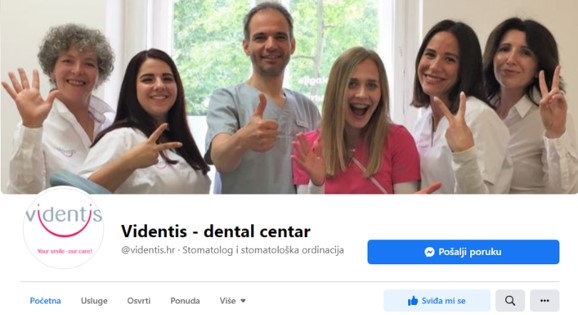Although the term “surgery” is usually associated with a hospital environment, general anesthesia, operating table and complex surgeries requiring long-term preparation and a team of people, when it comes to oral surgery, the reality is simpler.
Many common dental procedures are part of oral surgery and are performed in local anesthesia.


Among the most common surgical procedures in oral surgery are:
- tooth removal,
- extraction of impacted and retinated molars,
- tooth root resection (apicotomy).
Oral surgery also includes certain implant procedures, but this is a special dentistry field, called implantology. If you want to find out more about implantology in the Videntis Dental Center, visit our web page Dental implants.
Problems with wisdom teeth growing
Wisdom teeth, or cranters, are third pair of molars that usually grow between 17 and 25 years of age. In the human jaw there is enough room for only 28 teeth, not counting the cranters with which the number climbs to 32 teeth. Since they come the last, there is no place for them. Due to this, wisdom teeth are usually accompanied by pain and swelling, and complications solved by oral surgery.
Interesting information about wisdom teeth:
The lack of space in the human jaw scientists attribute to evolution and genetics. Thanks to the fact that a man learned to cook food the jaw does not have to be so much strained by chewing. This has led to a gradual reduction of the human jaw. Wisdom teeth simply do not “realize” yet that evolution has discarded them.
You do not have to suffer from painful and swollen wisdom teeth.
It takes 15 minutes to extract them.
If you have questions call us at – 00385 1 5515 300 – or send an inquiry.
Problems with wisdom teeth growing
Growth of the wisdom teeth can be accompanied by a painful inflammation of the surrounding dental flesh called pericontoitis. Symptoms of the complicated cranter growth are:
- dificulty opening the mouth,
- bad breath,
- higher temperature.
When is it necessary to remove the wisdom teeth?
We usually remove wisdom teeth if their growth is disabled. Here we distinguish two types of problematic wisdom teeth that cannot grow: impacted and retained cranters.
Impacted wisdom teeth and retained cranter
Impacted wisdom teeth are the ones which were not able to grow regularly into the dental arch because of physical obstacles on the growth path. The most common problem is obstacle made by another tooth.
If the wisdom teeth does not grow due to the wrong direction of growth, too deep position of the tooth germ, tooth germ damage, we call it a retained cranter.

Surgical extraction of the cranter
Extraction of the cranter is completely painless with local anesthesia. It is recommended that the patient slept well and rested before the surgery, and there is no need for fasting.
Recovery after the removal of the cranter is individual and depends on a number of factors, such as general health condition, complexity of the procedure itself, body constitution of the patient, and adherence to care and hygiene instructions after the operation.
After the surgery, the wound should be kept clean to reduce the risk of infection. Mild postoperative pain and eventual swelling are normal and short-term occurrences.
Painkillers are recommended for the pain, but not Andol or Aspirin – as they may prolong bleeding, and for swelling it is enough to apply cold compress: 15 minutes with pauses, especially in the first few hours after the surgery.
If the surgery lasted longer, the patient may feel the numbness of the lips and the tongue in a few days, but this is also normal and transient phenomenon.
The stitches are removed 7 to 10 days after the surgery.

Apicotomy: tooth root resection
One of the frequent interventions in oral surgery is apicotomy. It is a surgical removal of the root cap together with the surrounding inflamed or infected tissue. This oral surgery is used to prevent the loss of inflamed tooth.
Before apicotomy, it is necessary to treat the tooth with endodontic therapy. However, if endodontic therapy fails to cure the pathological process, it is necessary to remove the inflammatory tissue. More about endodontics at Videntis Dental Center can be found on our web page [LINK] “Root canal treatment”.
Apicotomy is performed under local anesthesia and is completely painless.
An apicotomy procedure
The first step is to cut into raise the dental flesh around the tooth root. In that way we access to the cap of the tooth root.
Then we remove the tooth and the inflammatory process around it and close the root canal with inert bio-material.
Subsequently, the flesh is stitched and recovery follows.
Do you have a problem or just want to gather more information?
If you have any questions, please feel free to contact us.
Our friendly staff will answer all your questions.



